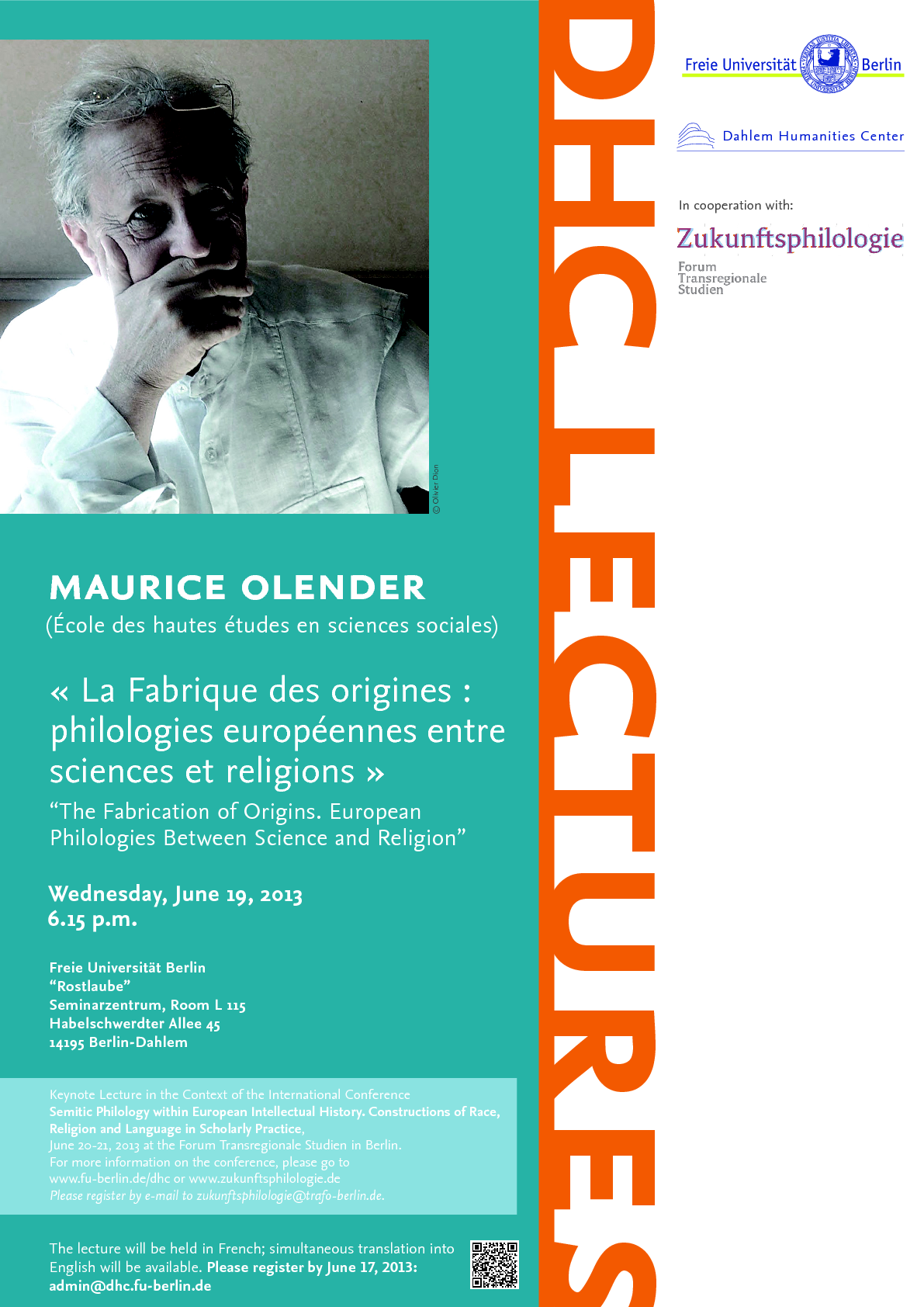Keynote Lecture in the context of the International Conference "Semitic Philology within European Intellectual History. Constructions of Race, Religion and Language in Scholarly Practice", June 20-21, 2013 at the Forum Transregionale Studien in Berlin.
Title: "La Fabrique des origines: philologies européennes entre sciences et religions" ("The Fabrication of Origins. European Philologies Between Science and Religion")
DHC Lecture with a welcome by Joachim Küpper (Dahlem Humanities Center/Freie Universität Berlin) and an introduction by Markus Messling (Universität Potsdam).
Lecture (held in French, translation provided)
The ancient appropriation of Hebrew by the Church Fathers was followed, in 19th century Europe, by an erudite readiness to construct new forms of discourse based on Sanskrit, in order to suggest new Aryan origins to the Western Tradition. In a world governed by Romanticist visions and driven by colonial aspirations, between a Christianity weakened by the Enlightenment and the propagation of a scientistic secularism, certain learned fables of an Indian origin succeeded in replacing the Hebrew ones as a figure of heritage. In this fabrication of origins, the new “Aryan Bible” called for a new language of Paradise: Sanskrit. The methodologies of “comparative philology,” long serving as a synonym for “language sciences,” could bear the mark of raciologic knowledge that had, often until the 1940s, guided both the Humanities and the natural sciences.


